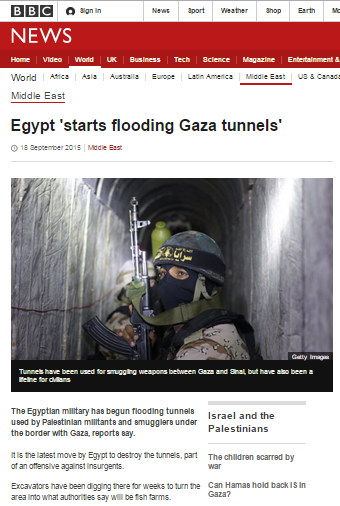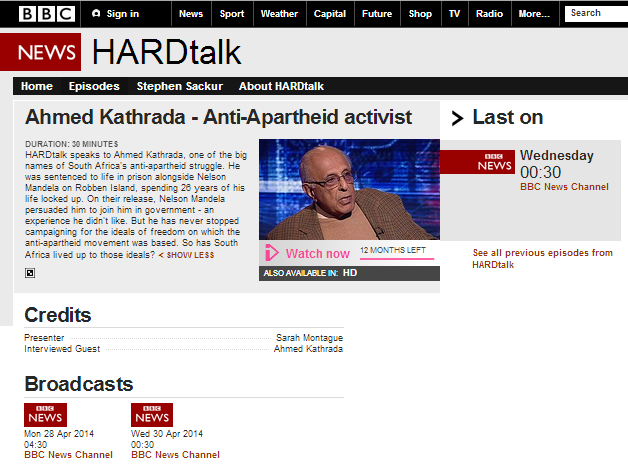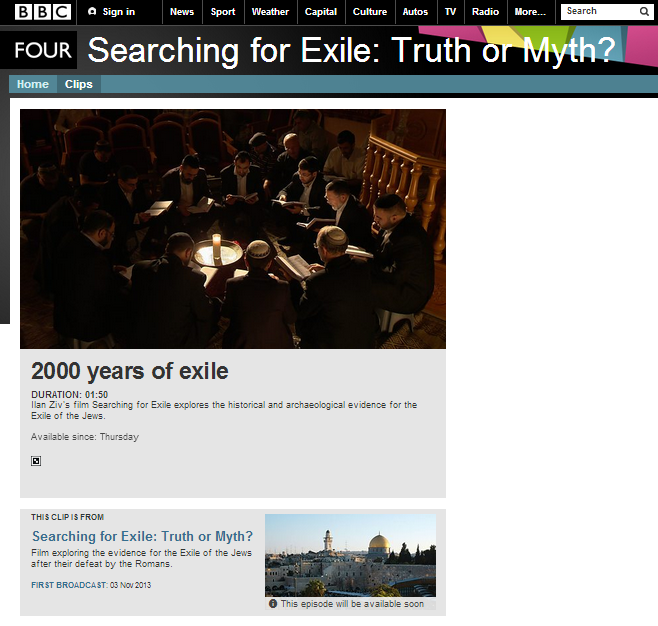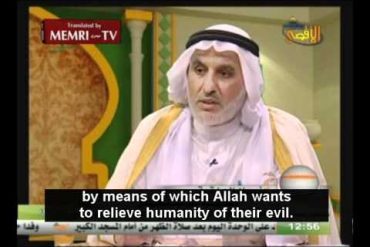One of the public purposes defined in the BBC’s Charter is titled “Bringing the UK to the world and the world to the UK” and under that remit the BBC pledges to “[b]uild a global understanding of international issues”.
Clearly audience understanding of international issues can only be achieved if they are told the whole story and a recent article provides a prime example of how BBC reporting can fall short of that pledge.
On September 18th a short article appeared on the BBC News website’s Middle East page under the headline “Egypt ‘starts flooding Gaza tunnels’“. Readers are told that: [all emphasis added]
“The Egyptian military has begun flooding tunnels used by Palestinian militants and smugglers under the border with Gaza, reports say.
It is the latest move by Egypt to destroy the tunnels, part of an offensive against insurgents. […]
Scores of Egyptian soldiers and civilians have been killed in an insurgency which has intensified, especially in the Sinai, since the overthrow of Egypt’s Islamist President Mohammed Morsi in 2013.”
So on the one hand, BBC audiences learn that Egypt is conducting “an offensive against insurgents” which includes the destruction of underground tunnels situated along its border with the Gaza Strip. On the other hand, readers are also told that the tunnels were used “by Palestinian militants and smugglers” – but no effort is made to clarify how or why those tunnels play a part in Egyptian efforts to combat that Islamist insurgency.
Further, one aspect of the tunnels which has nothing to do with Egypt’s offensive in Sinai is highlighted. The caption to the main image illustrating the article reads: [emphasis added]
“Tunnels have been used for smuggling weapons between Gaza and Sinai, but have also been a lifeline for civilians“.
And in the body of the report readers find the following:
“The tunnels, which emerge in the Sinai Peninsula, have played a vital role in the economy of Gaza, which has been under a blockade imposed by Israel and Egypt in 2007 as a measure against the territory’s Islamist Hamas rulers.”
Clearly that portrayal’s omission of the crucial factor of terrorism from the Gaza Strip – the real reason for the measures introduced by Israel in September 2007 – actively prevents audiences from building an understanding of the issue – as does the unqualified amplification of Hamas propaganda.
“Hamas has accused Egypt of collaborating with Israel to try to further isolate Gaza.”
This article represents just one more link in a long chain of BBC failure (see related articles below) to provide its audiences with a comprehensive picture of the connections between elements in the Gaza Strip and the Islamist insurgency in the Sinai Peninsula. Hence, whilst BBC audiences may now know that Egypt is flooding tunnels in Rafah, they still have no idea why.
Related Articles:
More selective BBC reporting on Middle East Jihadists
BBC erases Gaza Strip Salafist-Jihadists from its map
BBC’s Knell amplifies Hamas propaganda, downplays its terror designation




